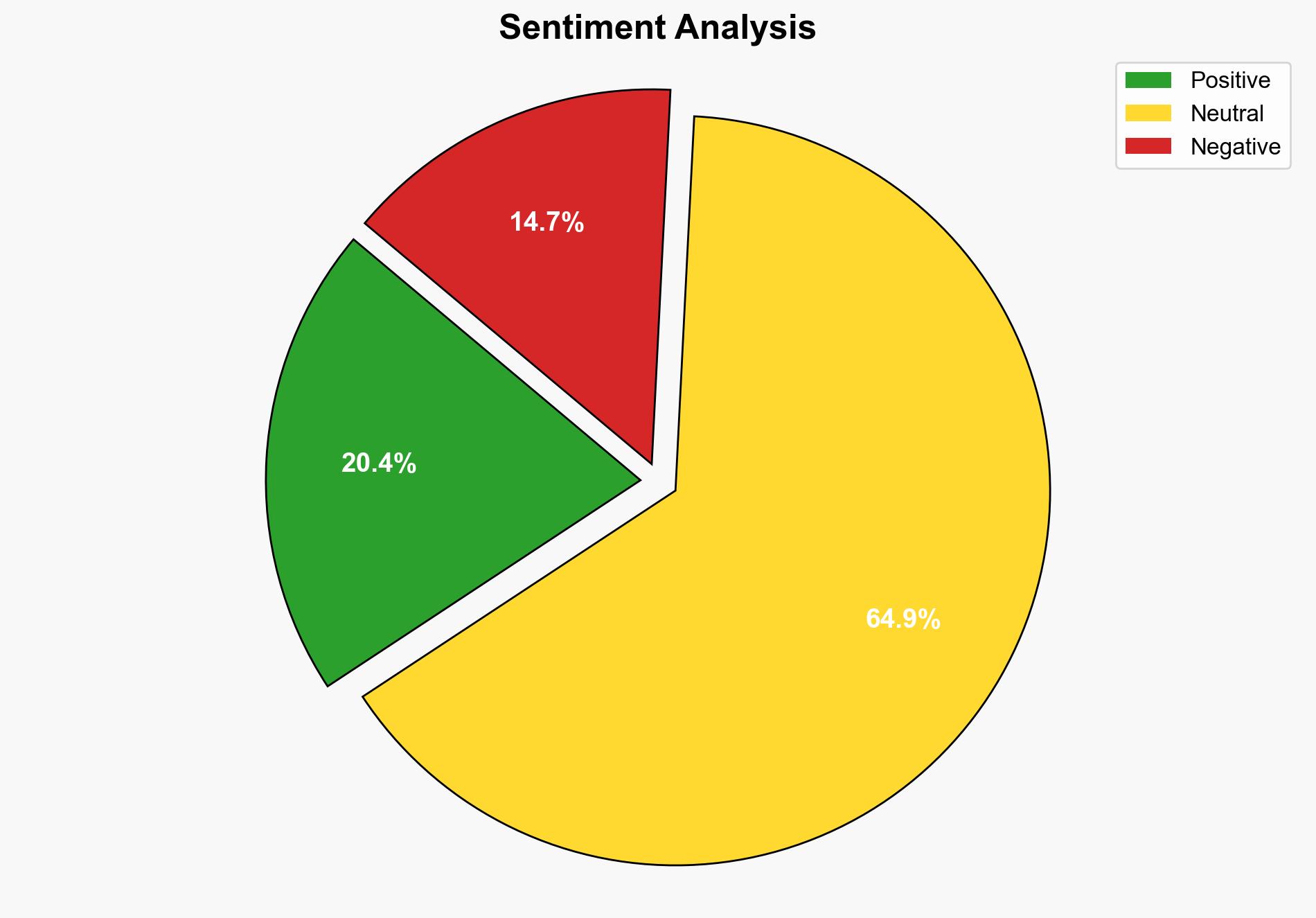Israel US reject French bid to recognise Palestine state – RTE
Published on: 2025-07-25
Intelligence Report: Israel US reject French bid to recognise Palestine state – RTE
1. BLUF (Bottom Line Up Front)
The most supported hypothesis is that France’s recognition of a Palestinian state is primarily a diplomatic move aimed at positioning itself as a leader in Middle Eastern peace efforts, despite strong opposition from Israel and the United States. Confidence in this hypothesis is moderate due to potential geopolitical shifts and internal pressures within France. Recommended action includes diplomatic engagement with France to understand its motivations and mitigate potential regional destabilization.
2. Competing Hypotheses
Hypothesis 1: France’s decision to recognize a Palestinian state is a strategic diplomatic effort to enhance its influence in the Middle East and assert leadership in international peace processes. This move is intended to galvanize other nations to follow suit, thereby increasing pressure on Israel and the US to engage in renewed peace negotiations.
Hypothesis 2: France’s announcement is primarily a domestic political maneuver aimed at appeasing its diverse electorate, including significant Jewish and Muslim communities, and is not expected to result in substantial international policy shifts or immediate changes in the Israeli-Palestinian conflict dynamics.
Using ACH 2.0, Hypothesis 1 is better supported by France’s historical engagement in Middle Eastern diplomacy and Macron’s public statements emphasizing a commitment to peace. Hypothesis 2 is less supported due to the international nature of the announcement and the lack of immediate domestic political gains.
3. Key Assumptions and Red Flags
Assumptions include the belief that France’s recognition will significantly impact international diplomacy and that other countries might follow France’s lead. A red flag is the potential underestimation of US and Israeli diplomatic responses, which may counteract France’s efforts. There is also a blind spot regarding the internal political dynamics within France that could influence this decision.
4. Implications and Strategic Risks
The recognition could lead to increased tensions between France and its allies, particularly the US and Israel, potentially affecting broader NATO dynamics. There is a risk of escalating regional tensions if other countries follow France’s lead, potentially destabilizing the already volatile Middle East. Economically, this move might influence trade relations, particularly in defense and technology sectors.
5. Recommendations and Outlook
- Engage in diplomatic dialogue with France to clarify intentions and explore potential compromises.
- Monitor regional reactions, particularly from Arab states and the European Union, to assess broader geopolitical impacts.
- Scenario Projections:
- Best Case: France’s recognition leads to renewed peace negotiations and a stable two-state solution.
- Worst Case: Increased regional conflict and diplomatic isolation of France from key allies.
- Most Likely: Diplomatic tensions rise, but no immediate changes in the Israeli-Palestinian conflict occur.
6. Key Individuals and Entities
Emmanuel Macron, Benjamin Netanyahu, Mahmoud Abbas, Marco Rubio, Jean Noel Barrot, Peter Kyle, Keir Starmer, Mark Carney.
7. Thematic Tags
national security threats, geopolitical strategy, Middle East diplomacy, international relations





